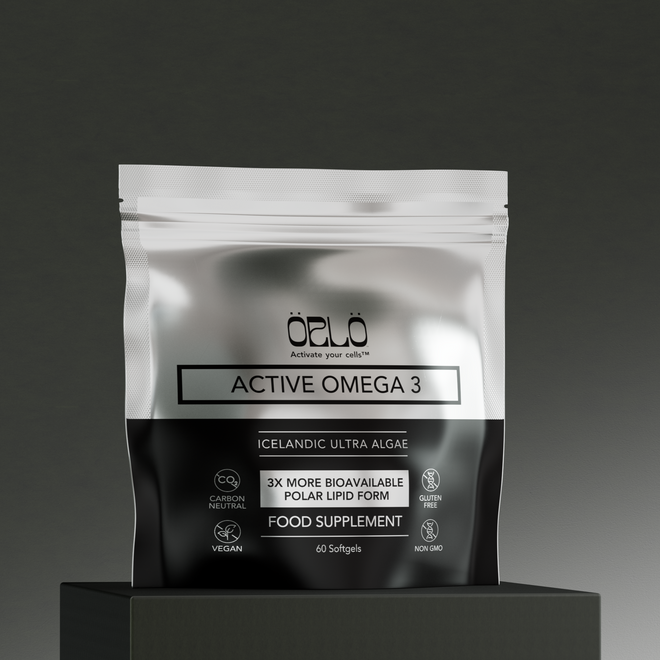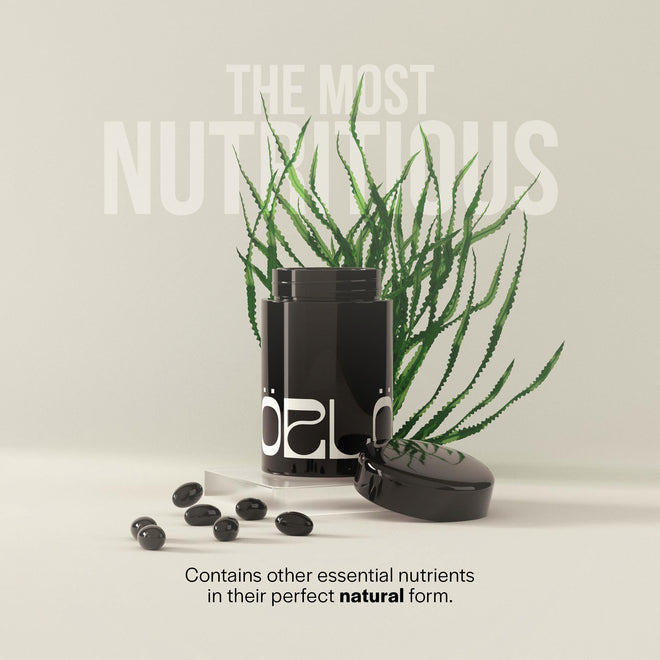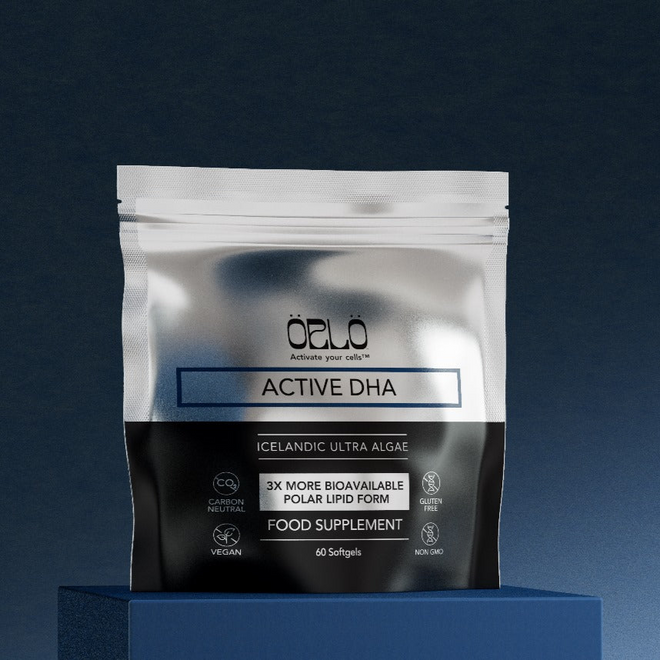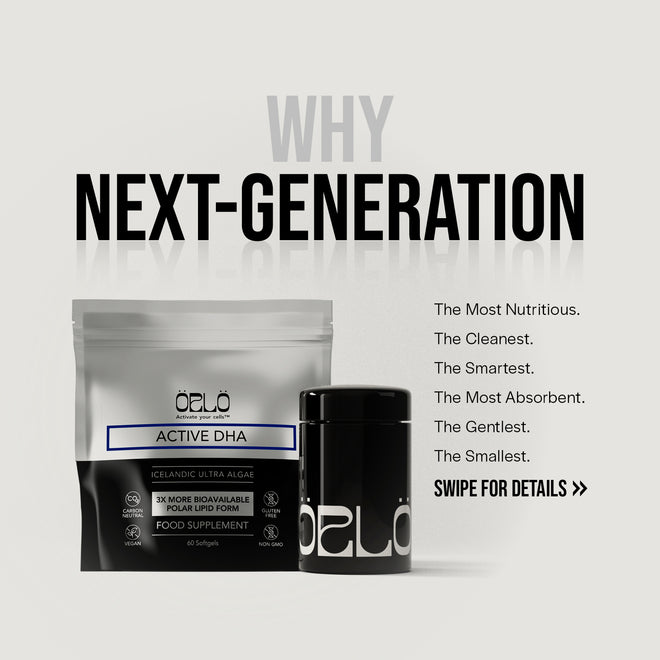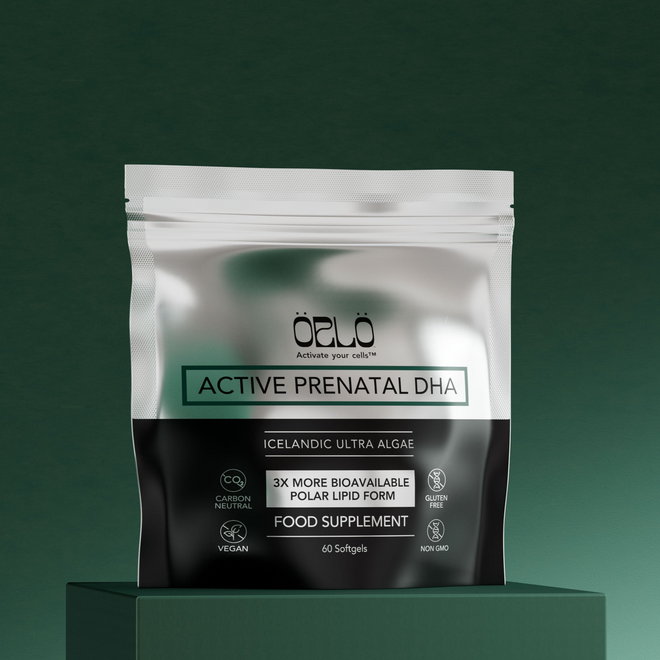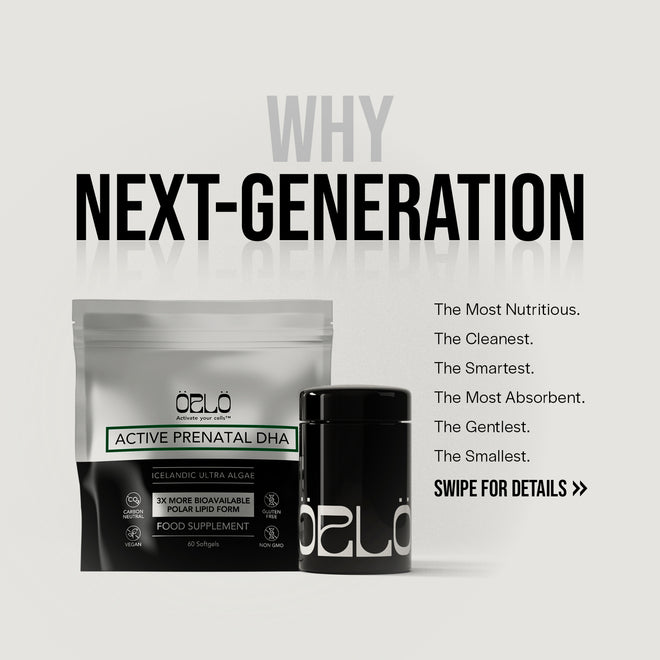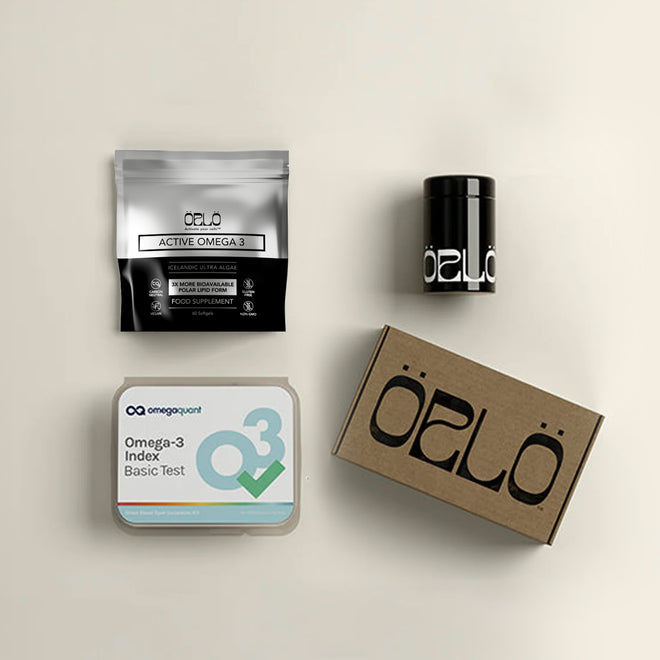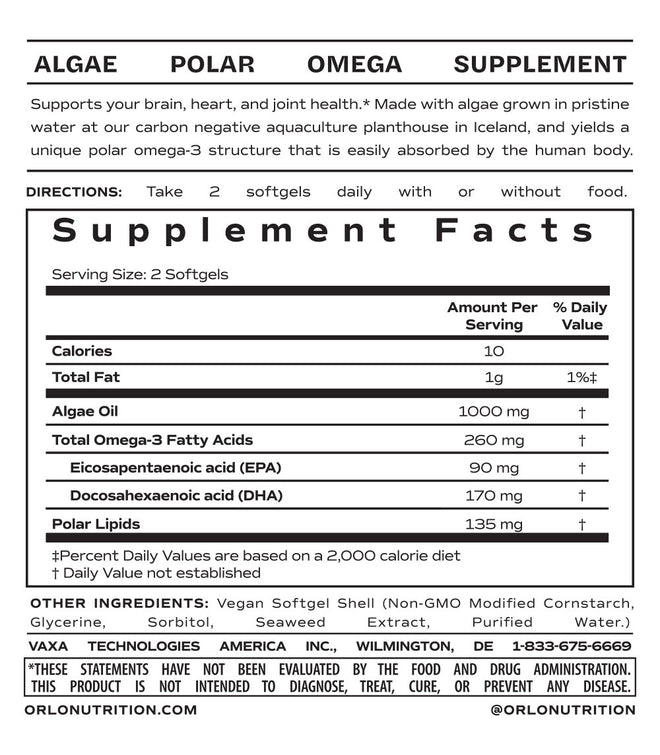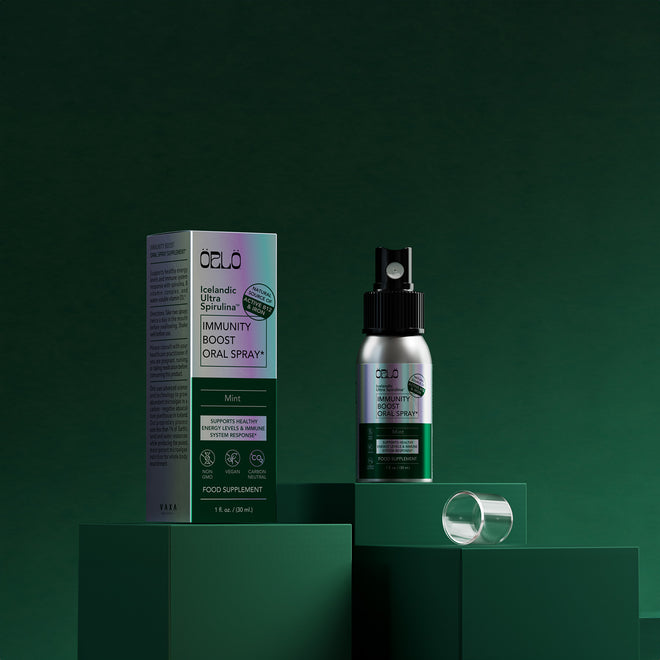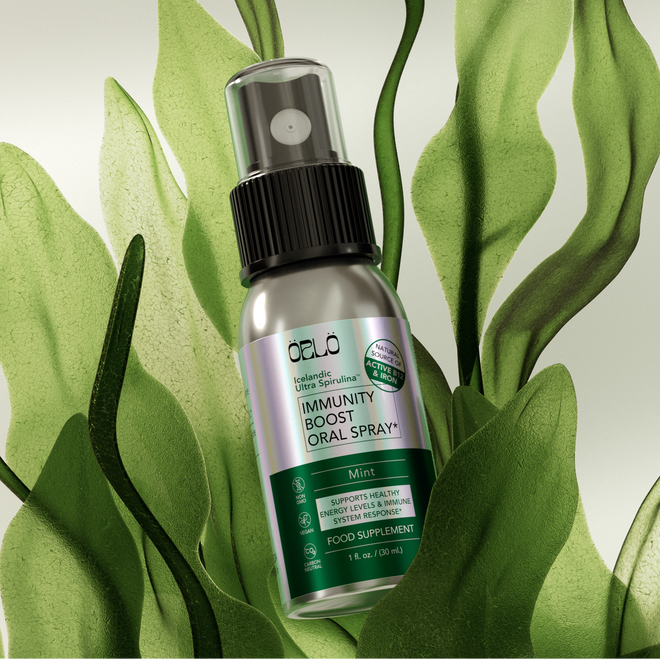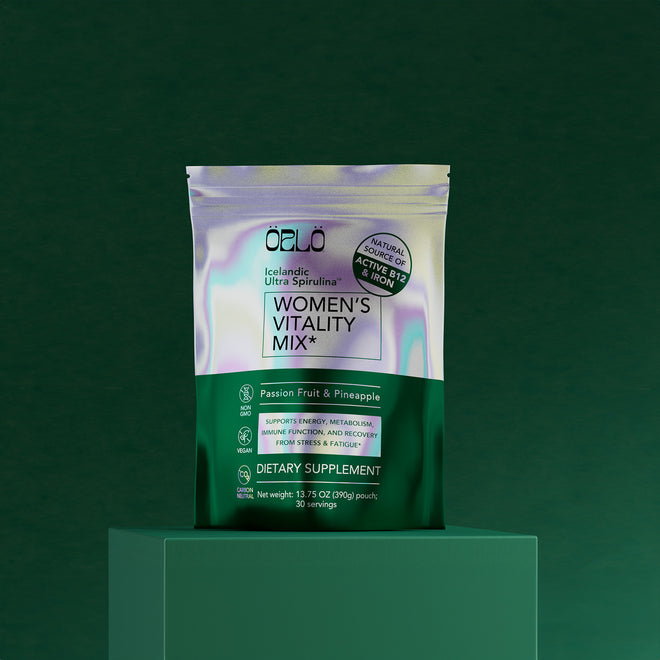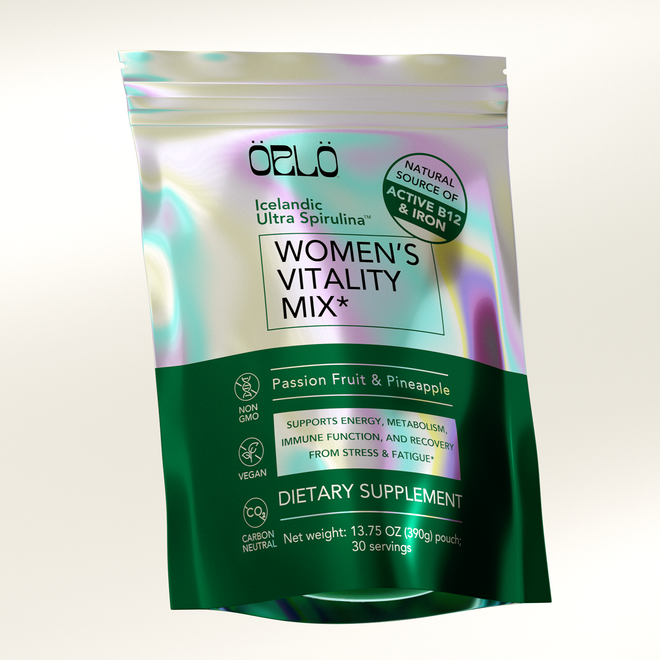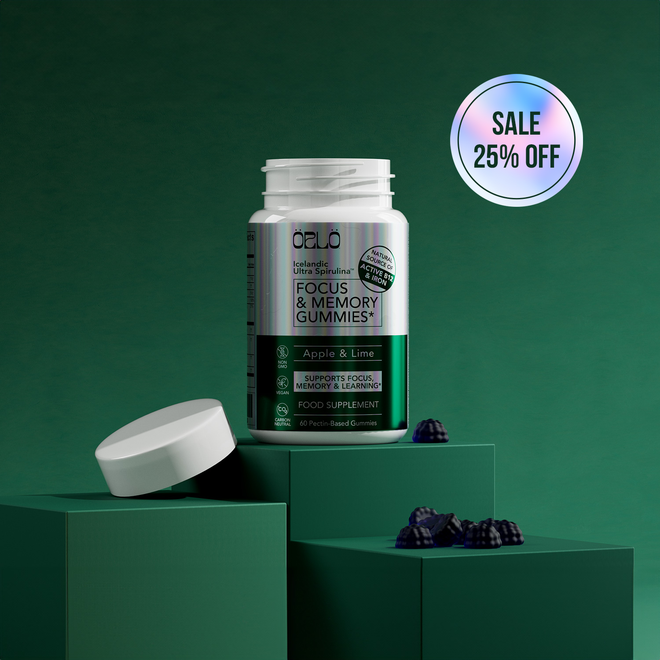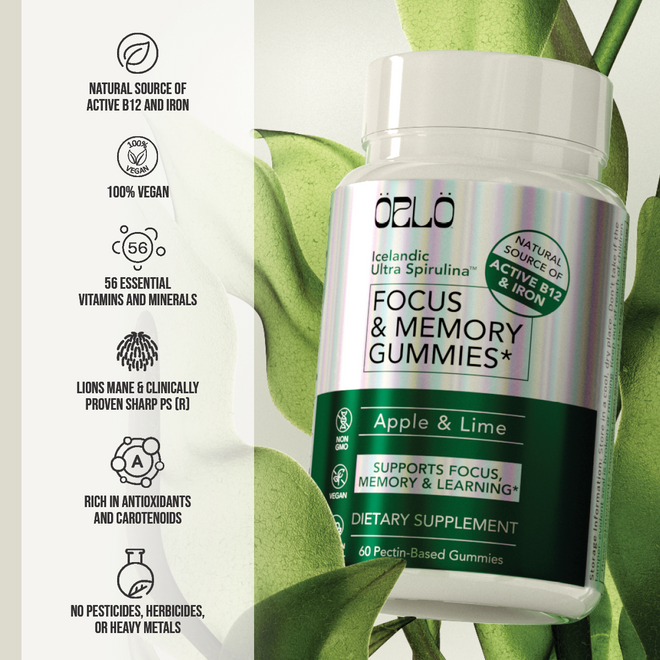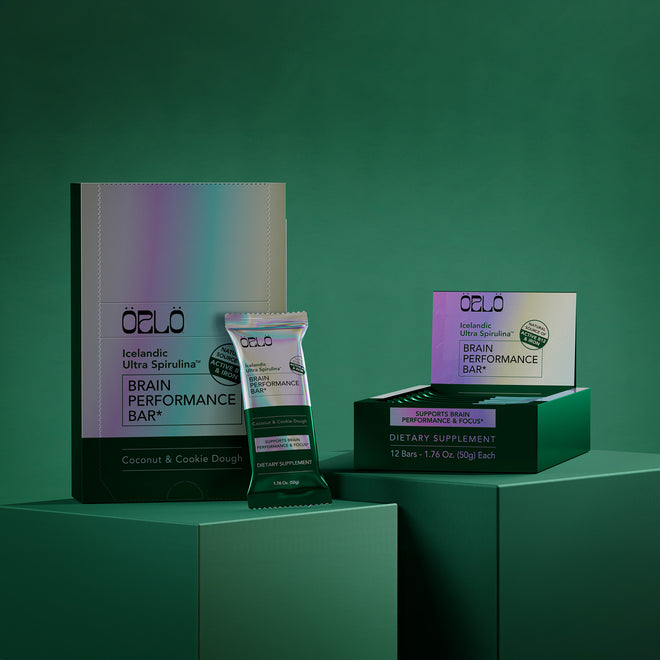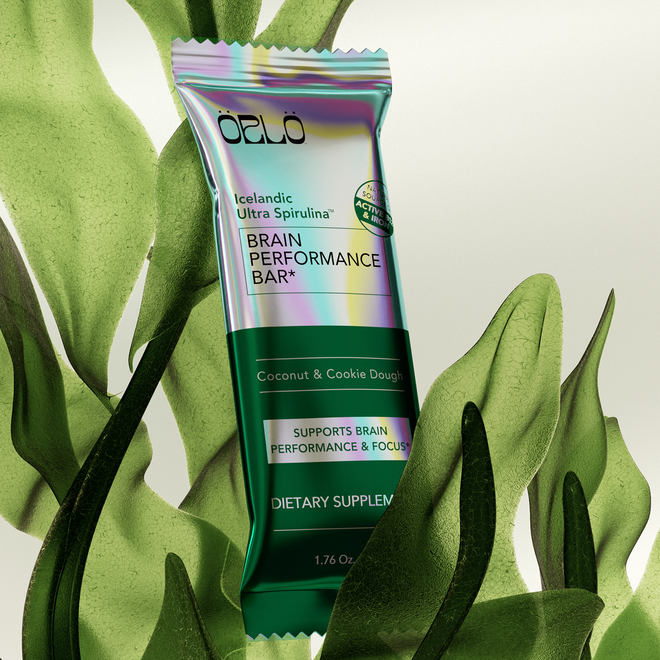25% Off - use code: HOLIDAYS
Brain Restoration Using Polysaccharides With Dr. John E. Lewis
Watch the episode here
If you want to have a healthier brain, you need to feed it with something healthy. This is where polysaccharides and high-quality food come in. Corinna Bellizzi is joined by Dr. John E. Lewis to unpack the extraordinary potential of polysaccharides in rejuvenating the brain.
Key Takeaways from this Episode:
- How polysaccharides, an often-overlooked nutrient, can play a pivotal role in brain health
- How a clinical trial revealed significant cognitive improvements and physiological benefits in individuals with Alzheimer's Disease
- How great nutrition can treat inflammation, improve immune function, and enhance stem cell production for better brain vitality
- How to enhance brain health through simple lifestyle adjustments and vitamin D supplementation
Guest Social Links:
Website: https://www.drlewisnutrition.com/
Instagram: https://instagram.com/DrLewisNutrition/
Facebook: https://facebook.com/DrLewisNutrition/
TikTok: https://tiktok.com/@DrLewisNutrition/
YouTube: https://youtube.com/@DrLewisNutrition/
---
Brain Restoration Using Polysaccharides With Dr. John E. Lewis
In this episode, we’re going to learn about a foundational set of micronutrients. You may not have heard that much about their health-promoting, longevity-supporting, ultimately nutrient powerhouses, and that is polysaccharides. You’ll get to learn how these powerful nutrients support your body’s natural Health defenses and, in particular, how they could even be key in the quest to treat and even reverse the progression of neurodegenerative decline. Joining me for this health discussion is John E. Lewis. He is a PhD and the Founder and President of Dr. Lewis Nutrition.
Dr. Lewis is the past associate professor in the Department of Psychiatry and Behavioral Sciences at the University of Miami Miller School of Medicine. He has been the principal investigator of over 30 different studies in his research career. He has evaluated the effects of nutrition, dietary supplementation, in particular, and exercise on all aspects of human health. He has over 180 peer-reviewed publications to his credit and some of the world’s leading scientific journals. Dr. Lewis embodies the model of health by eating a whole food, plant-centered diet for over 26 years.
He takes certain keen dietary supplements like the polysaccharides that he’ll talk to us about and through a rigorous daily exercise training program manages his health. John has a passion for educating others about the value of health. He’s here to share that passion with all of us. Before I bring him up, remember that this show is here as a resource to educate and sometimes even entertain. It is not intended to treat, diagnose, or cure any health ailments. There is no patient-provider relationship established between me, your host, or our guests like Dr. John Lewis. With that, out of the way here. Here he is, Dr. John Lewis. Welcome to the show.
Thank you, Corrina, for having me. It’s a pleasure to be here. I look forward to our conversation.
I want to get started learning a little bit about you. What led you on your journey to this whole foods, plant-based, healthy living perspective and even consider supplementation?
It goes way back in terms of always being somebody who plays sports as a kid. I grew up feeling like playing sports was a big deal and I’m always being physically active. I thought it was a big part of my life as a kid. As a university student, I got into drug-free competitive bodybuilding after my sports careers were over and got into how the body responds to nutrition and exercise and that type of training. I overcame, going down the road, bodybuilding in the sense of being very skinny most of my life and then getting into bodybuilding to track and overcompensation for being a very skinny kid. My body responded to that.
As we do, we evolve. We change over time. As we age, especially as we become young adults, we start reflecting and doing an inventory. I decided that I would never make a living or have a financial basis from bodybuilding. I wasn’t ever going to be willing to do drugs that would have allowed me to perhaps do that. I wasn’t willing to take that risk. I started shifting my focus more from a performance orientation to a health orientation.
As we evolve, we change over time. As we age and become young adults, we start to reflect on our lives.
For those people out there who are blessed with the ability to make a living in some kind of sport and have that genetic ability and gift, obviously, every single professional athlete focuses so much on nutrition. Although that’s probably more true now than it was many years ago. Compared to those people, the rest of the world ought to be a much bigger source of the people who are looking for answers related to health which, in my opinion, you get mostly through nutrition. Exercise is an important piece as well. I evolved out sports performance into a health orientation perspective on what I was doing in my life and it went from there.
I got into academic research. I’m not intending to do it but as I continued my education and my training, I decided that I wanted to be a researcher. I did that for roughly twenty years, but supplementation was something that was an aspect of my bodybuilding. Back in those days, I was taking creatine. I still take creatine. It’s a very important thing to take, not just for sports performance, but for a lot of different reasons to be creative. I didn’t focus too much on anything other than back in those days more than a multivitamin and minerals.
It didn’t dawn on me the importance of supplementing with certain things beyond my diet. You could say that I was one of those people who initially in my life and career thought you could get everything you need from food. Fast forward many years later, I’m completely the opposite. Now I think that you cannot just supplement your way to health but food is difficult. Even if you’re buying organic and non-GMO, you’re trying to buy local and all these different other strategies that you can implement if you’re fortunate enough to be able to do that. A lot of people obviously are not financially but even if you can do all of that, our food still comes up short in certain things that we need that are important from a supplemental perspective.
If not, you just have a little expensive poop and urine. You know what your priorities are and how you choose to spend your discretionary income. I think that it’s important to supplement beyond our food because, if for no other reason, the argument you could make is that we have such a polluted world with our soil, water, and air not being what it was before the industrial revolution and definitely before the turn of the 20th century when we started using many chemical inputs and then later when we started genetically modifying our crops.
Now we have plants that are inferior nutritionally from what they were hundreds of years ago. There are several arguments to be made for why we should supplement with certain things. I know Omega-3s are very near and dear to you. That’s certainly a great example. Vitamin D is another one, calcium, magnesium, and vitamin C. We could go down the list of things that Americans in particular are either deficient or insufficient on.
A lot of people are, unfortunately, not very conscientious about the decisions they make when it comes to food. More people are concerned about the car they drive, clothes they wear, jewelry they have, and the home they live in, and then when it comes to food, they’re elbow bins, their mouths open and they throw something in there without much thought or consideration. That’s where we have downstream from all of those decisions from the individual to the societal level. That’s where we have epidemics of chronic disease that I think are very much driven by poor choices in diet. Tourism is another key factor. We could go down that road as well and sorry if I’m a little long-winded.
I think you’ve touched on a few things that we need to unpack. One of those primary is the need to supplement because our foods or diet is not necessarily getting all of those core nutrients from the foods that we consume. One of the facts that leads there is simply that the carrot that we consume nowadays doesn’t have the same nutrient profile as prior cultivars. Part of that is because we have bred them selectively to be sweeter to even have a different color. There are white and purple carrots now.
These have different carotenoids in them because the carotenoids are what give the carrot its beautiful vibrant orange color. Even how we have managed our food supply over the years has shifted. If you want to make sure you’re getting enough vitamin A, you have to be consuming a variety of fruits and vegetables or in that yellow-orange-red perspective, not necessarily just a carrot. We have some significant shifts.
I’ve got a plate of food displayed. It’s arugula with some radish and some tomatoes. Each of these things has powerful plant nutrients in them and even some polysaccharides. We’re here to talk about polysaccharides and I’d love for us to be able to use this as a demonstration point for why certain nutrients should be looked to in a supplementary way, especially if you’re not eating a plant-centered diet that’s ripe with whole foods. We could all be eating the way you see in this picture behind me and getting some great new nutrients on our plates with every meal. We may not have the same problems. Let’s start with polysaccharides.
To add to your point, polysaccharides even take it one step further because the work that my colleagues and I have done over the years is from two particular foods. One of them certainly that no one needs. I don’t know about you. I know no one who eats aloe vera and then the other is rice bran, which comes from rice, but most of the world prefers to eat white rice. 70% to 80% of the world eats white rice, which has no rice bran. These two particular polysaccharides are absolutely the types of nutrients that 90% something of the people definitely are not eating any aloe vera polysaccharides and then from the rice brand, again, most of the world is not eating brown rice.
Even if they were, probably are not getting enough of the polysaccharide content from that cup of brown rice anyway. These polysaccharides demonstrated time and time again in our research laboratory how effective these things are and how truly pleiotropic their benefits and activities are. It’s quite astounding. If you ask someone about the benefits of aloe vera, 99 out of 100 people will say it’s a topical purpose.
Humans mostly don’t even think of using aloe vera orally. They think if you have a sunburn, a cut, or a wound, use some aloe vera gel and put that on your skin. That’s a nice application for it, but I can tell you, based on our work, that it’s far more potent when you can send polysaccharides after you’ve stripped the water out and now you have this concentrated source of these polysaccharides.
It’s way more beneficial to human health than if you just consume some of these products you see on the market like aloe vera juice or whatever they referred to. It’s not like you’re going to be harmed or hurt by those products. I think they’re basically a waste of money because they’re going to give you very little therapeutic benefit compared to a concentrated amount of the polysaccharides in the powder.
Directly consuming aloe vera orally is way more beneficial to human health than consuming some of the products on the market right now like aloe vera juice.
Let’s talk about what polysaccharides are. Poly means many and then saccharides which are water-soluble sugar-like substances, correct?
Correct. It’s always a good opportunity to educate people about what polysaccharides are in the context of how many years and decades has it been now that we’ve essentially been told by the mass media over and over again that sugar is bad. It’s like, “It’s bad for you. You can’t take sugar,” and that’s true. If you’re talking about a certain type of sugar, mostly simple sugars that spike the blood glucose and cause you to have a high insulin response. I’ll be the first one to throw out the high fructose corn syrup from the diet. Any kind of a package that you might consider buying that’s got high fructose corn syrup in it, by all means, do not use that type of sugar.
What it’s important for people to remember is that there are at least two primary characteristics of sugars that would drive your decision whether or not to use them. The first one is a sugar is not sugar, meaning the source of the sugar is very important. We made the distinction between polysaccharides coming from aloe vera and rice versus a simple sugar coming from corn. The source of the sugar is very important. The second that I’m alluding to is the biochemical stroke. How many carbon bonds, the density and complexity of all of those different molecular connections within the compound are also the second key characteristics.
We have basically generically speaking three different types of sugars. We have monosaccharides like fructose and high fructose corn syrup, then we have disaccharides, a little bit more complex sugars like sucrose, and then we have the poly or oligosaccharides that are the most complex sugars from things that like aloe vera and rice bran. More commonly, people think of sweet potatoes or all different vegetables, grains, and all your different fibrous vegetables, even beans and lentils as well.
Those types of polysaccharides are much different. When you’re talking about the complexity of the information, it’s almost like trying to categorize a 5D structure. They’re so dense with information that they cannot be completely characterized graphically. You’re talking about a source of information when if you want to take it one step further, what do our genes do when they receive information from the environment? Typically, that’s from our food.
We get information that comes in from the air, water, and other things that we drink and even exposure. All those things talk to our genes but what the genes listen to the most is the thing that we eat. This complex code and information in these polysaccharides has been shown to be more dense than even in amino acids and fatty acids. Imagine that for a moment. This is the reason why if you want to continue going down this road in Biochemistry a little bit, we can, but the information that these polysaccharides contain is so dense and complex.
They ultimately help to guide and drive the bioengineering of our cells. That’s where the genes receive the information from the environment, and then they guide us on how to function. We all love a good-tasting meal but this information that we get from putting things into our mouth that we consume and metabolize, that information is what is reminiscent or indicative of the term you are what you eat. That’s true based on what we know through the study of biochemistry and all these different types of nutrients and phytonutrients that direct our genes to tell us what to do.
Expanding on this for a moment. I think that what you’re essentially getting at is that when we get the right polysaccharides into our bodies. When we get more of them, we can turn on or off certain gene expressions. That then dictates your health outcomes over longer periods of time. In the case of someone like myself, I understand that I have one representation of the APOE for genome and allele, which can mean that I am at a higher likelihood of developing Alzheimer’s, dementia, or other neurodegenerative issues in my later years.
If I eat right, get the right nutrition, and get plenty of Omega-3s, like with Örlö’s polar lipid Omega-3s, then I’m going to be less likely to have those activations go on for the development or progression of these sorts of diseases that can accumulate when we don’t get the right building blocks throughout our life cycles. Is that a fair assessment of where you’re understanding is when it comes to these powerful polysaccharides?
Everything that goes into our mouths is crucial to how we function. That’s where I was trying to link this idea that most people have this mindless attitude about what they stick in their mouths compared to all of their other behaviors, but it’s crucial. To your point of you having this APOE for allele, which makes you a little bit more of an elevated risk candidate for dementia or Alzheimer’s, everything that you’re trying to do is to prevent the expression of that allele. What you want to do is obviously to send your genes in the other direction, but the easiest way to do that is through your nutrition.
Everything that goes into your mouth is crucial to how you function. However, many people have this mindless attitude to what they eat.
The simplest way in terms of the information that you can load your genes with is exercise, proper sleep, stress management, not using tobacco, and not using or very much limiting your use of alcohol. There are lots of other behaviors related to all this. In my opinion, when you look at the vast and enormous amount of research that’s been done under, let’s say, broadly nutritional science, to me, there’s nothing else that compares to any other behavior that we can control every day. In terms of your own genetic profile, what you or anyone else would need to do to help prevent having that type of expression occur later in life?
You mentioned alcohol. I’ve got to touch back on a couple of things. I am connected to several neurosurgeons and neurologists. Each of them essentially says that no amount of alcohol is good for the brain. Part of this is that there’s this connection between the liver and the brain. If we mind our livers and if we support a healthy liver throughout our lives, our brains will be in a better aging state as we get older as well.
At the same time, we also have people like Dr. William Lee, who we’ve had the pleasure of featuring a few times on this show who has said plainly, “One glass of red wine, preferably organic or one beer is okay and probably even health-promoting in its own way would be more so if it didn’t have any alcohol to it because then you could get the benefits of some of the polysaccharides in the wine but none of the alcohol.” What are your thoughts on all of this perspective and what do you generally caution people to do?
I wouldn’t characterize myself as an expert on the literature in alcohol but it is fascinating at least and perhaps very discouraging at worst. Going back to the last decades, there have been a lot of studies. We can’t enroll humans in clinical trials using alcohol or not. That would never pass an ethics board, but nonetheless, all these large epidemiological and observational studies granted that have a lot of air. I’m not saying they’re the gold standard either, but a lot of these studies in the last decades have been showing even just a little bit of alcohol.
We’re not talking about binge drinking or even people who are doing the regular 1 to 2 or whatever drinks per day in the evening with dinner. We’re talking limited like having a drink or two every month or so. Some of these studies show quite interesting and significant links between what is considered for anybody who’s a drinker. I haven’t touched any alcohol in many years. Drinking very little amounts of alcohol increases their risks for different types of cancers, particularly breast cancer in women.
It seems to be going against this notion that, “Drink your red wine. It’s got resveratrol. It’s got other things in it that are health promoted.” A lot of those studies are flawed because they try to tease out the effectiveness of alcohol among all these different behaviors that people are engaging in. You might find that the person who enjoys his or her drink of alcohol, whether it’s red wine, a beer, even a mixed drink or whatever, may also be the same person who’s doing lots of other things that are health-promoting and health-protective.
I don’t know that there’s enough good research out there to say, “Drink your red wine every day. It’s organic.” To me, that almost boils down to the alcohol industry trying to take a message where they know they have a product that if you drink it, it potentially can be detrimental in many different ways. We don’t talk about all those different things, especially related to accidents which I think is the primary driver of a lot of these early mortalities. In other words, you could get your resveratrol from eating lots of other vegetables and fruits without having to deal with the other effects that may be consistent with taking red wine.
We’re not even talking about drinking a lot of alcohol. We’re talking about a fairly minimal amount and still driving your risk of different types of cancer. I chose, many years ago, to no longer drink, and even then, I wasn’t drinking that much. 2 or 3 drinks a year was all I was drinking for many years. I’ll give credit to bodybuilding in the sense that when I was in college and getting into bodybuilding and, as most people do at that age, socializing with their friends on the weekend. We’d be out of the club or something having a drink or two. I realized that living like that and being a competitive bodybuilder at the same time absolutely was no bueno. Those kinds of behaviors were not parallel with each other. It was a pretty easy choice for me to make the decision that I wasn’t going to drink that much anymore.
People who drink are generally a little puffier. You don’t look as shredded as you want to as a bodybuilder. I would agree with that.
I never enjoyed the taste of alcohol.
I want to bridge this for a minute because you get the doctors that are on resveratrol even trying to make high concentrates of it and offer those as products, but there are also polysaccharides present in grapes and grape seeds themselves. You can get extracts of grape seeds that are high in those polyphenols which are also very health-supporting and which have research behind them to benefit your health over the long-term or you can also do as I do. When you see organic grapes and different varieties that are in season, you can buy and eat them. You can get some of these benefits from them as well.
There’s also a very interesting book because we’ve all heard about the French paradox like, “How can French people drink this red wine and eat these breed cheeses? They go ahead and have these fatty-rich foods and still have this amazing health and have a lower incidence of heart disease, heart attack, and cancers, etc.” They have many lifestyle compounding factors that are different like two-hour lunches, more days off per year, and better-balanced lifestyles. Generally speaking, it’s less when you’re in the big cities, but definitely when you live in the country.
There’s this incredible book by Dr. Kate Rheaume-Bleue who’s out of Canada. She wrote a book called The Calcium Paradox. She argues that it’s not just resveratrol in red wine, but in fact, even more likely that it has to do with the consumption of these cheeses that are fermented and have very high levels of vitamin K2 and K7 like the musters, breed cheeses, and things along those lines. These individuals in France who were eating this lifestyle are also consuming very high levels of vitamins that help to keep their arteries clear of plaque because of how they’re eating and the balance of their diet as a whole.
I like for people to look a little bit more deeply. Think a little bit more before you jump on the bandwagon, “If there’s this one miracle supplement that is going to solve everything and stimulate my cert one so that I have longer telomeres,” and things along these lines. We’re complex individuals. Health is more than just one focus and getting to a space where we have a balanced diet with deeper nutrition is I think critical for everyone. I would love for you to talk specifically about your research in polysaccharides. Tell us everything that you’ve discovered in the research that you’ve personally done.
I’d be happy to. I’ll start off with what I consider at this point still in my career, even though I’m no longer full-time in academics for many years. The clinical trial that we ran into people with moderate to severe Alzheimer’s disease completely exceeded any of our expectations. Going in, we were optimistic based on some of the anecdotal work that my primary colleague, Dr. Reggie McDaniel, who by the way was the person who got me into all this polysaccharide research and interest. Dr. McDaniel and I were able to, through the funding, receive a gift from a family that had lost four members to Alzheimer’s.
This family decided that they wanted to help him, which turned out to help us since he didn’t have an academic position at that time to be able to run this clinical trial. We use what we termed in the study in the papers that we’ve published from this study aloe polyominoes multi-nutrient complex. It wasn’t just a polysaccharide, although I will tell you that, based on the composition of the formula, the polysaccharides are truly the linchpin for the most significant aspect of it.
To your point, there is no magic bullet. The cells can’t just function on polysaccharides. They need lots of other things. That’s the reason why we utilize that formula in a constructive study. Sometimes, people have criticized us and said, “Where did you get this formula of ten different things? How do you know what works?” I’m like, “We don’t care about magic bullets. We’re still trying to help people with this tragic disease.” We ran this trial. We put people on the formula for twelve months. For people who have a caregiver and this horrible disease from our conventional medical perspective, it has absolutely no efficacious treatment. The five FDA-approved drugs for dementia. If you’re lucky, they delay decline for a few months, but you continue falling off the cliff.
We conducted the neurocognitive or neuropsychological testing at baseline 3, 6, 9, and 12 months. We drew blood at baseline in twelve months. Unfortunately, for us, the funding that we did get was not enough money to do the blood work at 3, 6, and 9. We ran this study. We have a very skeptical group of colleagues. Although, they were willing to help us. Ethically and scientifically, they did a very good job of running the study and being very responsible. We had a group of people we were dealing with mostly led by the psychiatrist and then the coordinators who didn’t think too much of nutrition research.
They were a sinner who did drug studies besides ours. They were very much into the pharmacological paradigm. I said, “You guys have money and we’ve got a lot of patience. We don’t believe nutrition is going to do anything for these folks, but we’re willing to work with you.” That was literally the attitude that we got from the staff in the center where we ran the study. We looked at each other like, “What in the world?” Skepticism is one thing but putting someone else down is another level to it.
We were running the study. As the study was going, it was interesting because we were optimistic and hopeful, as we enrolled the first few people, I started getting caregivers calling me in a few months saying, “My loved one is now doing things that he or she, in some cases, hasn’t done for years.” I was getting excited and my optimism was starting to be fulfilled because I was seeing the results of it. I was getting phone calls and emails from the staff saying, “I can’t believe what Mr. Smith is now doing. He hasn’t said this, done this, or acted this way, in some cases, in years.”
One of the anecdotes was the oldest lady we had in the study. She was 93. I believe she had Alzheimer’s for 11 or 12 years. She’s a very old and sick person. When she started at baseline, she could not walk as she said nothing. She literally was like a piece of furniture sitting on a piece of furniture. When she came in for the three-month evaluation, she walked into the center of that day. She called one of the coordinators by his first name and he started bawling like a baby.
He could not believe that this lady could remember his name. We got all sorts of amazing anecdotes like that. Fast forward a couple of years later after the study had concluded and we were working on the data and we’re starting to analyze it, I was feeling very hopeful that we had something that was unique. It turned out that at 9 and 12 months, we had clinically and statistically significant cognition.
This was according to the ADAS-Cog, which is widely considered to be the gold standard of assessing cognition in general but specifically in dementia. The neuropsychologist said she could not believe what was happening. She worked there at the center for fifteen years and was doing all the cognitive assessments. She said she’d never seen anything like it. I say that clinically and statistically significant very purposefully because a lot of times, in research, you can have something that is statistically significant but clinically or practically irrelevant or it doesn’t have any meaning.
You might have been able to move some markers with regard to plaque or cholesterol, but it didn’t have a health outcome that was significant.
In this case, we were thrilled with the clinical significance in terms of cognition. I didn’t but I literally felt like tears were coming to my eyes. I always get chills every time I tell the story because of how meaningful it is to me and all the people that I’ve worked with now for this many years period. In addition to that, you have cognitive improvement on the clinical side and then physiologically or biochemically on that side, what do you have to support it?
Several things. First of all, we redo inflammation according to TNF-alpha and VEGF. That was very important. Our paper was probably the first one that published that kind of effect on Alzheimer’s disease. Those markers are looked at as either a heart disease or cancer. We showed a very nice improvement in the CD4 to C8 ratio, which is your ratio or the relationship between your helper cells and your cytotoxic cells. That’s not just important for people with Alzheimer’s. That’s important for all of us and we want that ratio to relatively be as high as possible as we go through life.
I want to point something out. You’ve basically said that by giving them this regimen over the course of 9 months to 1 year, you were seeing significant reductions and inflammation and also in the body’s ability to detoxify. That’s what it sounded like to me. I wanted to be clear and to help people understand what it means in the end as opposed to the acronyms. Is that a fair assessment or did I get something wrong there?
I don’t know if use the word detoxification, but I would say lowering inflammation and then modulating or improving overall immune function. Those are the terms that I would use. In addition to that, we also showed under a 300% increase in adult stem cell production according to CD-14 cells. When you take all of that in combination and look at this picture together, unfortunately, we didn’t have the money to do imaging studies. We started this study at the end of 2008 or early 2009. I’d have to go back and double-check my notes.
We published the first paper in 2013. I know the imaging would be very good if and when we have the funding to do another study and advance our research. When you look at the clinical side, unless you’re the biggest skeptic in the world and you say, “They had spontaneous healing.” That’s a term that people throw around when they have no better explanation for why somebody got better not just from Alzheimer’s but any type of disease.
Unless you’re the biggest skeptic in the world and ignore all the rest of the data, that’s perhaps one explanation. Our explanation is when you lower inflammation and improve overall immune function combine this and increase adult stem cell production, the only thing that makes sense to us is that an increase in adult stem cells migrating to the brain. Neuroplasticity is, generally, well-accepted now. There may be a few people out there who still don’t believe in that, but we do know that the brain can regenerate itself, not necessarily in every part of the brain, but in certain parts of the brain.
The only thing that makes sense to us is why in the world these moderate to severe diseases were not mild cognitive impairment or mild severity. These were the sickest people and I didn’t mention that they are also 79.9 years of age on average. They’re not only very sick and very old people. They didn’t only have Alzheimer’s but they had hypertension, dyslipidemia, depression, and diabetes.
These things might be related. Systemic inflammation does many terrible things to our bodies. I’ve spent a fair amount of time reading on this topic, in particular, inflammation of the brain and how we can work to reduce it. The fundamentals come down to reducing the consumption of processed foods and increasing the consumption of very nutrient-dense polyphenol-containing foods. People say the Mediterranean diet, for instance, but what is in a Mediterranean diet?
You unpack it and you start to see high levels of Omega-3s that reduce your body’s systemic inflammation. You see more plant foods, salads, olives, and things like that too. You might have a little bit of couscous, but it makes up a part of the plate, not the whole plate like a giant bowl of pasta. We’re eating differently. We’re practicing different habits. That’s the key. We should be sitting down to enjoy a meal that is a pleasant experience. It has a rainbow of colors to it, hopefully, so you’re enjoying the sense of consumption.
That has the types of nutrients that we need in a daily way. If we eat this way our entire lives, we probably wouldn’t bioaccumulate the terrible systemic issues that we end up with, both inflammation-wise, waistline-wise, toxin-wise, etc. It makes sense to me. I understand the protocol that you’ve developed is something that you have made available through Dr. John Lewis Nutrition. You did send me some of the stuff. I took a look at it personally. I’ve consumed the capsules and the powder which isn’t too difficult to do. I’ve integrated it into my supplementary regimen for a couple of reasons.
1) The research that you mentioned is very compelling. I hope that you’ll provide me with direct links to the study. 2) I have a personal connection to Alzheimer’s. I do have that one representation. My grandmother was diagnosed in her 60s with Alzheimer’s disease. It manifested personally in a strange way. I remember at that time I was about 20, 21, or something like that. We’re sitting down for a barbecue at my father’s house on the 4th of July.
We’re all enjoying some time outside. Barbecue is going. He’s grilling some eggplant. He’s got some veggies on there. He’s getting the meat ready and everything doing some kebabs of this. My dad’s an expert in barbecue. All of a sudden, with her glass of wine in hand, she just looks at my dad who’s her son, and says, “How are you related to the family?”
This is my first exposure. He’d seen a couple of things that were a little off before that. He looks at her and chuckles. He goes, “I’m your son.” She says, “Stop. You’re far too old to be my son.” This is obviously somebody who has had a break in their brain somewhere. Now she’s experiencing life thinking that she’s probably in her 30s at that point with a young son at home that’s 6 years old as opposed to a 50-year-old man.
I’m sure many of the readers have had a similar experience at some point in their lives with a loved one because we’ve gotten to a point where this disease is overtaking our largely aging population. People are living longer and unfortunately, their health span has dramatically declined and their last few years and sometimes in the last few decades because of neurodegenerative diseases and issues. Is it your belief at this point that these types of diseases are avoidable?
No question about it. I don’t know how many of your readers are fans of Jack Lalanne. That guy was an inspiration to me. He was 93 or 94 when he died. He died of a lung infection. Up until the last two weeks of his life, he was still working out every day. He was swimming and lifting weights.
On his 80th birthday, he pulled a boat and swimming in the San Francisco Bay or something like that. There was always something with Jack Lalanne.
What an amazing life that man lived. He’s one of many, but he’s probably the most famous that I can think of. When people have this inevitability of chronic disease mentality, as we say mind over matter, you’re telling your body you’re going to become sick. It’s important that we don’t have that type of self-talk. I’ve seen nutrition, especially these polysaccharides and this formula that I’ve been working with, do many amazing things. As to your disclaimer earlier in the show, we’re not talking about treating disease here. We’re talking about providing the raw materials that the body needs to repair and restore itself.
When people have this inevitability of chronic disease mentality, you're telling your body that you will become sick.
I don’t think chronic disease is part of aging at all. I firmly believe it’s not. I’m living it. I hope that my life, regardless of how many years I live, I’ll still be functional the day that I die much like Lalanne was. That’s my goal. We have no cure for mortality at this point. It’s unfortunate that we have a society that’s just wrecked by chronic disease when it doesn’t have to be that way.
I’m in complete agreement and I feel like I need to make an introduction for you to Dr. Joseph Maroon, who’s an oxygenarian himself and who is still competing in the Kona Triathlon the Ironman each year. He jokes that he is winning his class, but he might be the only person racing in the class. He says his goal in life is to die young as old as possible. He’s living that reality. As a neurologist and neurosurgeon, your research would be right up his alley.
I personally think that together, you might be able to advance this a little bit more. I understand how hard it is to be out there and working to build a supplement company to support the health of people and reach them. What can you tell people about how they can connect with you and the company? If they’re interested in giving this product and this perspective a word, what would you say to those individuals?
Anyone can find me at our main website, which is DrLewisNutrition.com, and all the typical social media channels Dr Lewis Nutrition through Facebook, Instagram, YouTube, and a little bit on TikTok. Although politically, that may not be the best place anymore for Americans. I have a lot of information there about my life and my research. You can find lots of articles, videos, and geared toward the Daily Brain here, which is the product that grew out of the research from the University of Miami from the academic experience that I only touched on one study. There’s a lot more that I could go into.

DrLewisNutrition.com is the best place people can find me if they want to learn more about all the research that my colleagues and I conducted. We have Daily Brain Care in powder and capsule form. We have other products that will be coming down the pike as we continue growing. You can find my contact information there. I have a phone number and email to anybody who would like to contact me for more information. I’m happy to engage with those folks.
To that point, I would like to remind people that this type of supportive nutrition is very good in combination with a high-quality Omega-3 in the polar lipid form for better absorption to your brain because you can get that now from algae. Örlö Nutrition is the primary sponsor for this show. We bring you this show specifically to help you ultimately improve your health and get access to great nutrition information.
Omega-3s and polysaccharides can work together to create better brain health for the long-term. These two things can go together quite nicely. I want to thank you for your time. I like to end the show with a resource of some sort for our audience. If you were to give people either a tip or something that they could change in their lives now to support their health for the long-term, what would that be, or if you had a magic one to wave and change one thing about health and nutrition, what would it be? You could answer either of those or maybe both.
We didn’t touch on the subject of vitamin D. It’s not even a vitamin as you know. It’s a pro-hormone, but we have 70% of Americans are either insufficient or deficient in vitamin D. Take vitamin D. Even if you don’t have a lot of resources, vitamin D is a very cheap supplement. You don’t even need a supplement. Go out in the sun and spend 15 or 20 minutes 3 or 4 times a week in the sun. Take off as many of the clothes as you feel comfortable and let it as much of your skin. Get exposed to the sun as much as you can. Vitamin D answers many problems that we’re dealing with in these chronic diseases that we’ve mentioned. To me, that would be a very simple recommendation.
It doesn’t require a lot of effort, money, or time to help your health. As far as waving a magic wand, the thing that I would do immediately is get rid of all of this lobbying. We call it lobbying in the United States. Everywhere else in the world, we call it corruption. We have way too much lobbying when it comes to big pharma, big food, and big agriculture and how they’re squeezing our country in terms of all this emphasis on the profit margin or motive at the expense of our health.
To me, it all boils down to too much lobbying that’s going on in the relationship between our congress and industry, and how that is squeezing out, especially the small farmers and people that grow our food in the way the dynamics of all that have changed. We need a total change in the way we’re doing government. That starts with getting rid of lobbying and helping people to better understand the value of food and health as opposed to just waiting until people get sick, throwing medications at them, and then going down this tragic road that I saw many of my relatives go down. That would be my magic wand yesterday if possible.
That did come out of left field, but I tend to agree with you. Ultimately, when we do let rampant law behavior then what we get is products with special interests. There were moments in time when lobbyists tried to even take away the ability for you to go to the store and get that vitamin D or Omega-3 and make everything a drug so that drug companies can profit and you have less access to the healthy things that support you without getting a prescription for it. I think we all are aligned with wanting to have better access to healthy products. I would love to see that happen myself. Thank you very much for joining me. This has been my distinct pleasure.
I want to go ahead and remind our audience that we do have some special promotions going through the holiday season at OrloNutrition.com. We’re absorbing the cost of shipping for the entire rest of the year and we still are running our Tested By You program. That means that you can go ahead and come to OrloNutrition.com and sign up for a subscription to get our DHA Omega-3 or prenatal DHA products. You’ll receive a test to verify your levels of Omega-3s now and after four months of supplementation because it’s our belief that you can modify your consumption patterns and see a real change of up to three times better absorption. It’s a tiny little pill. Take a couple of days and see where you’re at over four months.
This can help you make decisions about whether you need to make additional lifestyle changes to optimize your levels of Omega-3s. You can do that also with things like vitamin D and CoQ10. There are several different tests that you can take to verify where you’re at. It’s something that comes with the blood spot test. You do get it if you subscribe to Tested By You. There is a little spot for the Omega-3.
If you decided that you wanted to add a couple of other tests there, I believe it’s vitamin D and CoQ10. We don’t cover the cost of the vitamin D or CoQ10. We don’t own that company, but if, to your point Dr. Lewis, they also wanted to check their vitamin D, they could just pay a little extra and with that same finger prick test, verify their levels of vitamin D. I’ll end it on that note. Do you have any closing thoughts?
Thank you for having me on your show. It’s been a pleasure. If you ever want to have me back, I’d be happy to do that. I hope people got something out of the information that we shared related to polysaccharides. It’s probably one of the most important nutrients most people have never heard of. Remember, it all comes down to the source. Anything that you can get, whether it’s my product or some other competitive product, that’s fine too, but these polysaccharides can do amazing things for people. I would encourage them to strongly consider utilizing them if they’re not already.
Thank you so much for your time, Dr. Lewis.
---
What an informative discussion with Dr. John Lewis of DrLewisNutrition.com. It’s not often that I personally encounter another supplement company that I feel is focused on the greater good. I want to personally say that I respect what he’s doing. I respect the research behind it and I wish that this product had been on the market back in the days when my grandmother suffered from her steep dementia and decline. I know this is a personal issue for many people and you may like me be experiencing the ravages of something like this and your personal life with those connected to you as they enter their final years and decades.
We all need to be seeking a better health span, experience, and living. We should know what it feels like to be vibrant, healthy, and lively even in our later days. Getting the nutrition right in the very beginning is the ideal but you can make changes today that get you there tomorrow and the next day. You can make changes today that benefit you more with time. We see that time and again with supplementations through things like Omega-3s and the cumulative benefit that people get with time.
I will remind people once again to go and check out the Tested By You program because it’s our belief that this can be life-changing for you. We do have a bonus discount. You can use the coupon code NWC for an additional 10% off at checkout. Through the holiday season of 2023, we are covering shipping costs. There’s no minimum for that. I encourage you to go check that out. I hope that all of you will do me a solid and raise a cup of your favorite beverage with me as I say my closing words, here’s to your health.
Important Links
- Dr. Lewis Nutrition
- The Calcium Paradox
- Dr Lewis Nutrition - Facebook
- Instagram – Dr. Lewis Nutrition
- YouTube – Dr. Lewis Nutrition
- TikTok – Dr. Lewis Nutrition
About John E. Lewis
 John E. Lewis, Ph.D. is the Founder and President of Dr Lewis Nutrition and past Associate Professor in the Department of Psychiatry and Behavioral Sciences at the University of Miami Miller School of Medicine. He has been the principal investigator of over 30 different studies in his research career, evaluating the effects of nutrition, dietary supplementation, and exercise on aspects of human health. He has over 180 peer-reviewed publications in some of the world’s leading scientific journals. Dr. Lewis embodies the model of health by eating a whole-food, plant- based diet for over 26 years, taking certain key dietary supplements, and through a rigorous, daily exercise training program. John has a passion for educating others about the value of health.
John E. Lewis, Ph.D. is the Founder and President of Dr Lewis Nutrition and past Associate Professor in the Department of Psychiatry and Behavioral Sciences at the University of Miami Miller School of Medicine. He has been the principal investigator of over 30 different studies in his research career, evaluating the effects of nutrition, dietary supplementation, and exercise on aspects of human health. He has over 180 peer-reviewed publications in some of the world’s leading scientific journals. Dr. Lewis embodies the model of health by eating a whole-food, plant- based diet for over 26 years, taking certain key dietary supplements, and through a rigorous, daily exercise training program. John has a passion for educating others about the value of health.

